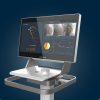Today’s pharma companies face three primary challenges in their efforts to engage with their customers. There are more ways than ever before to engage—and as the response to the pandemic showed, digital engagements play an increasingly vital role. There are more stakeholders to engage than ever before, as purchasing decisions for digital therapeutics or precision treatments now require input from multiple business lines.
In addition, companies cannot ignore the high expectations that other industries have set in their approach to healthcare provider (HCP) engagement. Whether they’re interacting with luxury brands or pizza chains, consumers have come to expect near real-time access to the information they need to research a product, make a purchase or ask a question.
Companies that succeed—no matter the industry—must have the right data infrastructure in place to help them determine what their customers want, when they want it and how they want to receive it. One of the most critical elements of this success is connected intelligence, which provides a full view of customer needs and expectations to everyone in the organization.
Where Off-the-Shelf and In-House CRMs Fall Short
As with their counterparts in other industries, pharma companies typically turn to customer relationship management (CRM) tools in their efforts to gather data about individuals in the markets they serve. Though this approach has good intentions, it often fails to meet HCPs’ true needs.
CRM systems built for more traditional sales environments typically cannot account for the breadth and depth of information that commercial engagement teams need. Effectively engaging with physicians or pharmacists today means meeting them at multiple touchpoints, including industry events, webinars, email and phone interactions, social media and in-person meetings at their offices.
Field-based sales teams “own” some of these engagements, while digital marketing owns others and event teams own others still. Using separate off-the-shelf CRM systems to capture customer information at each of these touchpoints quickly results in a series of data silos that only provide fragments of information about customers.
Unless these systems are integrated—which is a difficult and expensive endeavor—then sales and marketing teams don’t have a 360-degree view of their customers. Time and resources spent pulling and merging data sets manually quickly erodes (or even eliminates) the initial ROI that companies gained from implementing their CRM systems.
Some companies have recognized this knowledge gap and attempted to build their own custom CRM system that can pull data from multiple sources at once. Unfortunately, the short-term gains of implementing such a solution are often offset by the need for frequent software updates and system maintenance. This strain on internal IT resources makes it difficult for fast-moving consumer health companies to hit their growth targets.
What Pharma Companies Need in a CRM Solution
Customer engagement initiatives benefit from an approach to CRM that’s agile enough to reach across the organization, break down information silos and provide a complete view of the customer to employees regardless of their roles. These purpose-built CRM solutions offer three clear benefits.
- Seamless integration. Data integration is at the heart of modern healthcare IT operations, and consumer health is no exception. A CRM solution should be able to pull data from any system that contains customer data without the need for a custom integration project.
- Personalized engagement. Pharmacists and physicians have come to expect personalized engagement experiences in their personal lives. To meet these expectations, pharma companies need a CRM solution that supports the entire sales cycle, enables optimized and personalized engagements at each touchpoint and provides the insight necessary to inform next-best action recommendations.
- Customer journey mapping. One key reason the customer inquiry process is so complex is that different stakeholders within the organization engage with HCPs in different ways. The prescribing physician or dispensing pharmacist have different information needs; they also evaluate this information at different times and in different settings. CRM solutions should help companies create customer journey maps that best meet their specific customers’ requirements.
Connected Intelligence and CRM
When a CRM solution brings together previously siloed data sources, enables customer journey mapping and supports personalized engagement at each touchpoint of inquiry process, the result is connected intelligence.
Teams across the organization have access to the data, insights and recommendations they need to make better, faster and more accurate decisions. In addition, teams are empowered to collaborate. Since everyone has access to the same information at the same time, the company spends less time working with the data and more time using the data to build long-term customer engagement and support strategies.
Data is the lifeblood of effective HCP engagement. With the right data and insights, companies can better meet the needs of their customers, ensuring that the right answers are provided for each inquiry received at the right time. To achieve this state of connected intelligence, companies will increasingly benefit from CRM solutions purpose-built to address the complexities of inquiry management and fulfillment to drive enhanced customer engagement.







